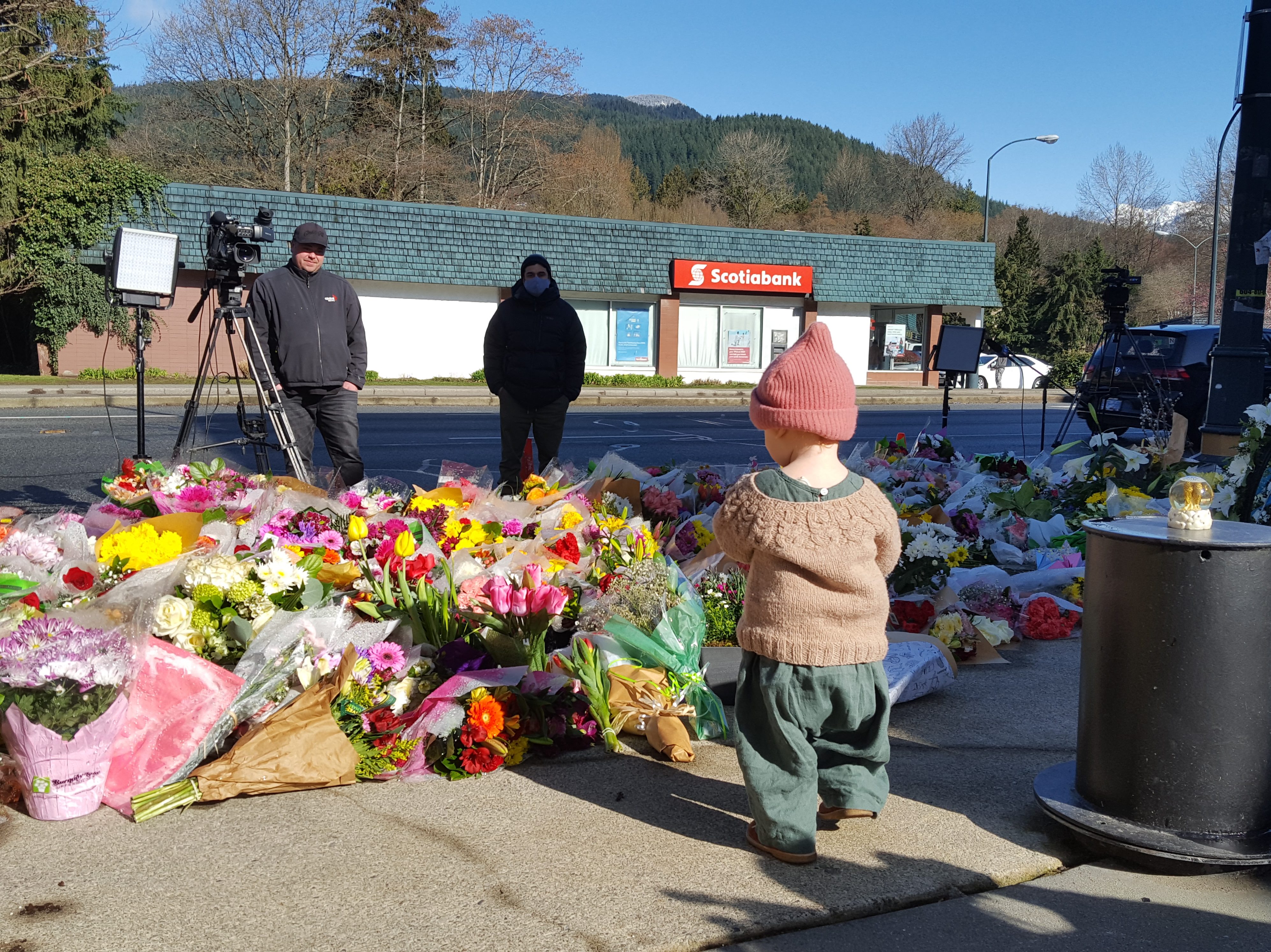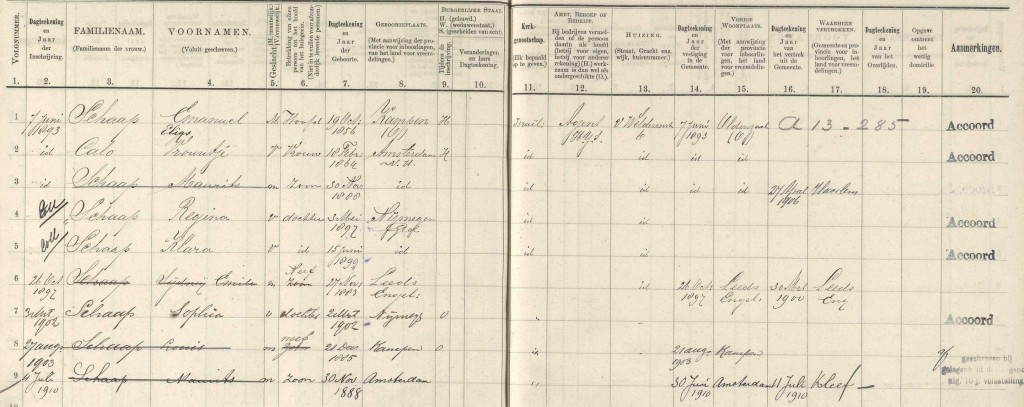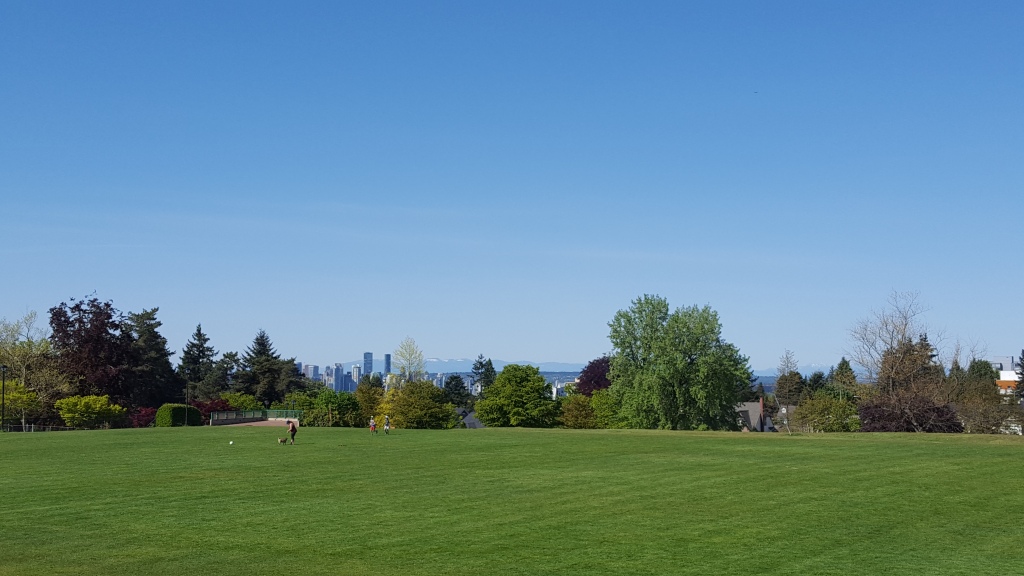On my 53rd birthday, I stood at a makeshift memorial of flowers and candles at the edge of the plaza outside my neighborhood library, thinking. Then I was interrupted.
“Was it a n-gg-r?” the older man in the captain’s hat asked me. I should have answered that question with a strong remark about how inappropriate, sadly backward, and racist it was. I didn’t. I tried to ignore the man as he tried a different tack. “They should have better security around the library,” he went on. “Too many crazy folks around here and not enough resources to handle situations.” I agreed with him on that. Then he continued with, “It’s breast milk, you know! Humans are not meant to drink it for too long. Wean kids at 5-6 months, or else they get violent when they’re older”. At that point, I shifted away from the scene.
It was a crime scene less than 48 hours previously. Last Saturday afternoon, in my small suburban village of North Vancouver, a relatively quiet family-centered community 20 minutes from downtown Vancouver, nestled in a beautiful tree-lined valley of the Coast Mountains, a homeless man had apparently gone berserk, taken out a large knife, and gone on a 15 minute rampage of slashing and killing. He started at an annex of our library where a book sale was being held. A young woman there was the first victim. Taken completely by surprise, with no chance of defending herself, she died of her injuries shortly thereafter, right at the scene. An alert bystander at the book sale, a local teacher, chased him off with her umbrella (very Vancouver), but was also stabbed in the process. He tore away and went on to slash five more hapless bystanders outside of the book sale and plaza area before being captured by police at an intersection just two blocks from my home.
My home. I live with my wife and teenage soon in a townhouse just down the road where all this happened. I was out hiking for the afternoon, but they heard the sirens; siren after siren, in fact, starting around 1.45 in the afternoon. We live by a firehall so we are used to sirens–but not twenty in the span of twenty minutes. Townhomes and apartments are getting smaller and smaller in Vancouver, so we rely on nearby parks, community centers, libraries, and local shops as extensions of our homes. Our library and its neighboring coffee shop is one of these extensions. They are the defacto library and front parlor of our home, albeit home extensions that exist three blocks down the street. On TV that Saturday evening, we saw all these familiar locations swarming with police and strewn in yellow tape; the umbrella-wielding teacher being treated for her wounds in an outside chair of our coffee shop, at a table where we ourselves would often be sitting on a Saturday afternoon at 1.45 pm. Our home.
That Saturday, I decided to go hiking in the afternoon. My wife delayed her shopping for some reason. And Covid-19 has changed our routines as well. We mostly go out for coffee only if the weather is relatively good and we can sit outside. The weather that day was rainy.
We learned on Monday, my birthday, the “Was it a n-gg-r?” day, that the assailant was a young black man running from outstanding warrants in other parts of Canada. In a picture of him in better times, he looked like a really nice guy. He has a great, friendly smile. He looks like someone you might strike up a conversation with at a coffee shop or at a book sale at your local library. What happened that Saturday to trigger him to take a knife to a book sale?
Our library, left to serve an unstated need of the community, accommodates a few homeless people during the day. There is a very nice, quiet black man who very conscientiously stays out of the way of patrons. He never spends too much time at any one PC workstation terminal or desk, but moves from place to place, reading and studying. When descriptions of the assailant were first announced, I was worried it might be him. It wasn’t. There are others too. One day about two years ago, a rough looking young man with all his belongings around him was slumped over an outside table at the coffee shop. A few folks checked on him, including me. Even before Covid-19 the times were tough. Many homeless people in BC and Canada migrate to Vancouver because the climate is warmer, a benefit when you need to sleep outside. Unfortunately, there is another terrible problem around Vancouver in the form of another pandemic: the Opioid drug crisis. So many people have died from that illness, and some of them are homeless too, or find themselves struggling with life and their place within it, but our governments seem to do very little about that, especially now when they have a bigger pandemic in the spotlight.
The outpouring of support shown by the kind words for the victims and the fellowship of our community is quite a sight to behold. But we are hurting. In a sense, we’ve all been hurting for some time, like so many communities everywhere. People have been hit by a lot in the last several years: an economic crisis brought on by big banks that are too greedy to fail, a US presidency based on self-serving conspiracy theories used for personal gain, a worldwide pandemic in which science takes a back-seat to politics in similar fashion to the climate crisis we have now left slowly simmering on the backburner. Overall, I think we as a society have a sense that things are finally out of control. Our leaders don’t have the answers, and we cannot even agree on a shared reality anymore: Trump couldn’t have lost the election because he had the most votes of any Republican candidate in history; climate change isn’t real because it was colder than usual in my locale last winter; Covid-19 is just an excuse for world government to roll out its plan to control us all.
We are all confused and feel overtaken by local events interlinked with an ever-shifting roadmap of the global. I would imagine a black man with outstanding warrants from Quebec and Manitoba, living on the streets of Vancouver during a pandemic would be confused and scared too. I don’t agree with how he handled his confusion and fear, but I try to retain a sense of empathy. I’ve heard some remarks around our community about taking a baseball bat to the assailant. I shudder to hear such statements when these sorts of things happen. It seems sadly that the ancient, innate human programming to seek revenge comes to the fore in a crisis of loss. How I wish we could evolve from that behavior. We are never going to solve the problems that we face with anger, hatred and name-calling and making up lies. These are just the easy answers, simplistic reactions to unsettling fear and confusion.
“Was it a n-gg-r?” the words still roll around my head. I’m rattled and angered by an old man wearing a captain’s hat, but I guess he is pretty confused too. And scared. And lost. Just like me, who was too afraid to engage him in a real conversation to tell him that no one deserves to be called that and it does nothing to improve things. How I wish our human society can learn to live like a real community. How I wish we could use empathy and communicate with each other to understand our problems, a first step in solving them. When we rally from a terrible event, can we really grow and change? Can we evolve as a society? What if we don’t?
On my 53rd birthday, I stood at a makeshift memorial of flowers and candles at the edge of the plaza outside my neighborhood library, thinking.



